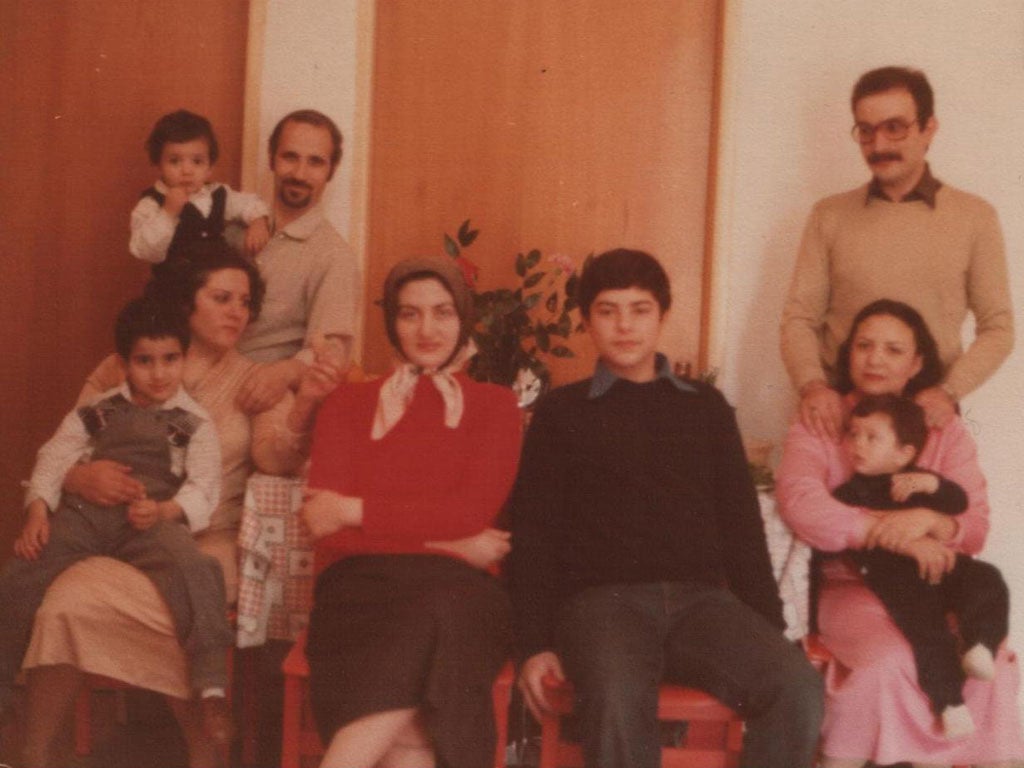Judge Iran by its people, not its politics
Most British citizens wouldn't like to be held accountable for all the policies of David Cameron, so why am I subjected to so many silly stereotypes about Iranians?


I am the daughter of an Iranian immigrant: a direct product of the political upheaval of 1979 that caused a diaspora of Iranians to flee their native homeland. The result was an Iranian population of more than 40,000 in Britain by 2001. First, second and third generation Iranians are a visible part of communities all over Britain today.
The turbulence of Middle Eastern countries may seem detached from our daily lives, but with sizeable foreign groups in our midst, there are issues arising abroad that have increasing resonance in our own country too. I believe that a devastating cultural conflict is taking place here in Britain, and I’ve experienced its impact with regard to Iran and Iranians first-hand.
The first incident came in response to a feature on Persian food that I pitched to a BBC magazine. I received what felt like a curt response from the editor, saying “obviously it's not a good time to feature Iran” which came across as blunt distaste at the idea of promoting Iranian culture. As far as I’m aware, part of the BBC’s creed is a policy of political impartiality. Are my taxes paying that editor’s salary so that she can bitterly and blatantly judge my heritage?
Later that same week, a university specialist on Middle East politics led a seminar in which he described Iranians (as oppose to the Iranian government or Iran’s politics) as “evil, radical Islamists”. He presented this as a straightforward description that he believed the majority of people in the world hold at this time. After a few sentences, I pointed out that I’m half-Iranian and found his phrasing harsh; he shrugged and continued. I’m an avid supporter of academic debate, but with at least a degree of respect and sensitivity.
It seems that people in Britain suddenly think that it’s acceptable to say whatever they like about Iranians, no matter how openly detrimental or offensive their comments may be. Where is our adherence to multiculturalism, tolerance and inclusion, the political principles said to uphold modern European states?
The most concerning part of this is that people are pinning negative connotations on the Iranian people, and are not separating out the politics of the Islamic Republic for scrutiny instead. Citizens of a non-democratic state in particular should not be held responsible for their government and its foreign policy by any observer.
If you’re ever met an Iranian, even for five minutes, you’ll know that the culture is humble, welcoming and kind. My father’s people, my people, do not deserve to be thought of as political extremists or religious bigots. My family in Iran, just like most Iranian citizens, are ordinary people abiding by the laws of the country they were born into, and getting on with their everyday lives, just like us.
In a liberal democracy like the UK, do the British public want to be seen as a direct extension of David Cameron or Nick Clegg, or judged purely in connection to either’s politics? I highly doubt it. But Brits apparently find it too difficult to distinguish the Iranian people from Iran’s authority figures and ruling doctrines.
The Iranian people, wherever they are in the world, are not zealous, mad Islamists. Rather, they’re proud parents, grandparents, brothers, sisters, aunts, uncles, cousins and more. They’re foodies and they’re travellers. Many of them are bilingual. They use technology on a daily basis, they listen to pop music and they watch films in cinemas. Although the political distance is vast, the difference in British and Iranian daily lives is much smaller than you might think.
I am as proud to be Iranian as I am to be British, and I assert my right as a British Citizen to openly identify myself as mixed race. And I expect to garner the same level of respect from my fellow citizens as anybody else would. But this feels like less and less of a reality as politicians and the media encourage a negative narrative of Iranians, both nationally and globally.
Yes, the Iranian government has an agenda, just as the American, Israeli and British governments do. And I can’t deny that the agendas of different countries are completely at odds with each other on many issues. But in an age where the world is becoming ever more inclusive and open-minded, I do wish we could start judging a country’s people separately to its politics.
Join our commenting forum
Join thought-provoking conversations, follow other Independent readers and see their replies
Comments
Bookmark popover
Removed from bookmarks